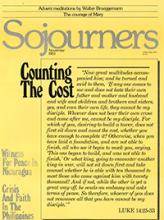On August 8, 1983, after two hours of shooting that left at least eight dead and 20 injured, President Efrain Rios Montt was forced to surrender the National Palace to his own minister of defense, Brigadier General Oscar Humberto Mejia Victores. The army high command reclaimed control of the national government and, it hoped, of the military itself.
Next year, 1984, will mark the 30th anniversary of military rule in Guatemala. In 1954 the Guatemalan army and its business allies took control of the country's government in a coup funded and directed by the United States Central Intelligence Agency. Since then the military has "preserved democracy" and Western ideals by killing tens of thousands of civilians, driving as many more into Mexican refugee camps, crushing the rural development movement, destroying the labor unions, controlling elections, and, more recently, nullifying the national constitution and disbanding the national congress. All the while it has enjoyed the fruits of widespread corruption. Now for the first time since its three-decade tenure began, the Guatemalan military is experiencing serious rifts within its ranks.
It is easy to get caught up in the intrigue of the battle for power in Guatemalan politics. It is more difficult to realize that all the political activity, including elections when they occur, has very little meaning for 70 per cent of the country's population. This is an often deadly game that has been going on for years among the elite of the country who reside mainly in Guatemala City. Rarely have changes in political control translated into more just policies for the rural peasant class. Many Guatemalan peasants have said that there are no political changes in their country, only new masks.
Read the Full Article

